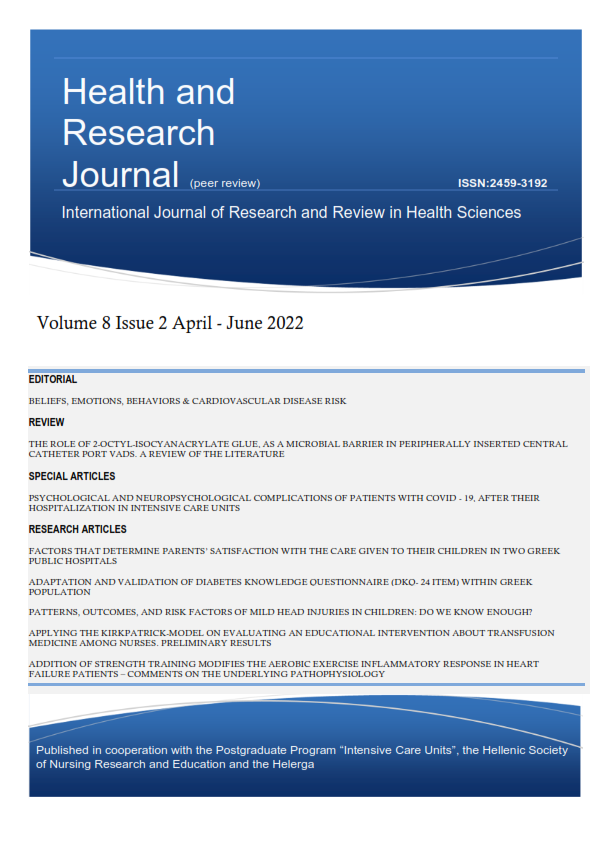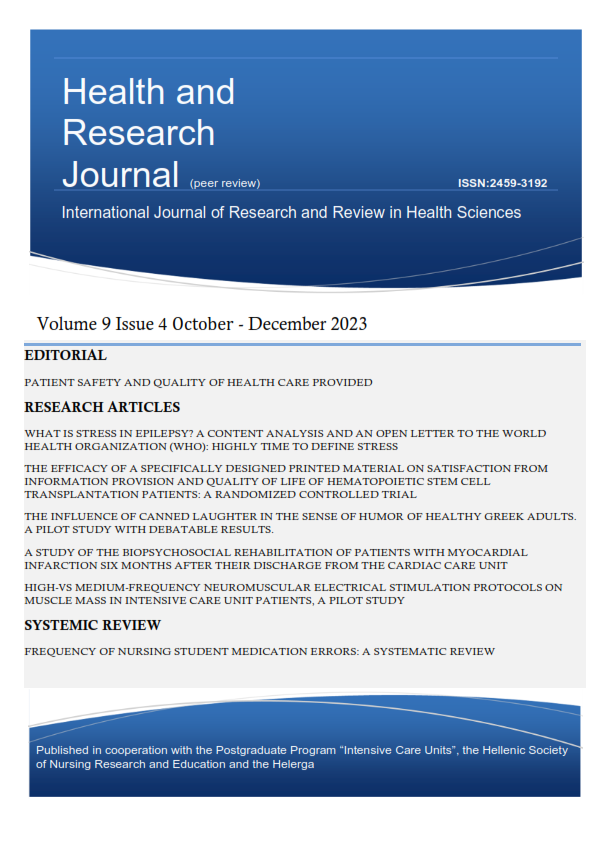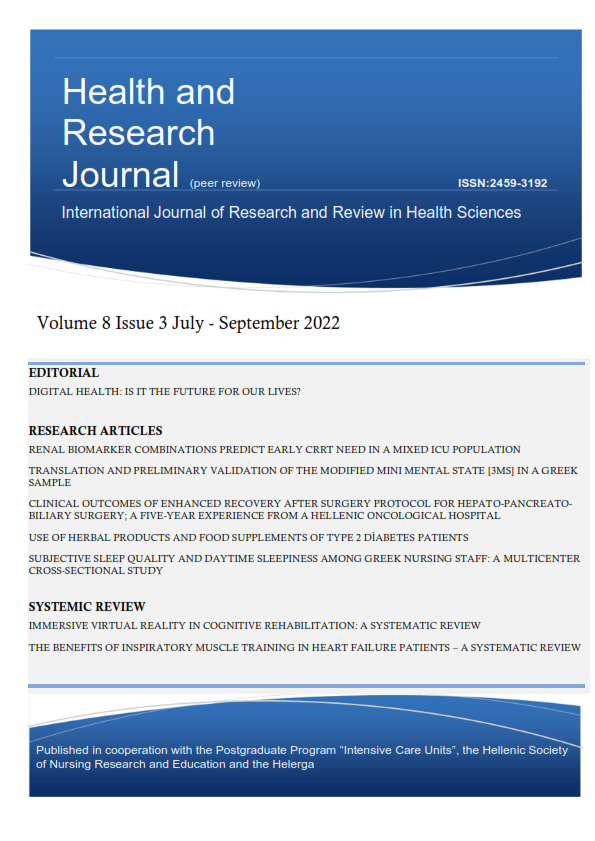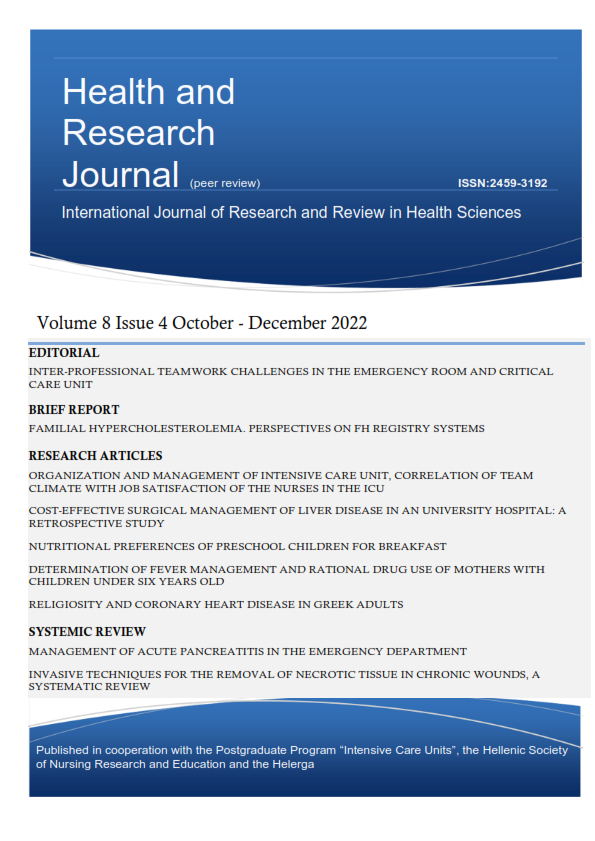Adaptation and Validation of Diabetes Knowledge Questionnaire (DKQ- 24 item) within Greek Population

Abstract
Background: The Michigan Diabetes Research and Training Centre develop, during the 80s, the Diabetes Knowledge Questionnaire in order to determine the level of diabetes knowledge. Providing insights both to researchers and health professionals as an aid to intervening and improving diabetes self-management.
Aim: The aim of this study was to translate, adapt and validate the Diabetes Knowledge Questionnaire (DKQ) to Greek Language.
Method and Material: The 24-item DKQ was administrated to a preselected sample of 40 patients with type 2 diabetes. The validation study was conducted from February to March 2020, in the diabetes clinic of a major Greek general hospital. The questionnaire was transcribed in Greek using “forward–backward” translation by two independent translators. Individuals’ demographic data were recorded. The data is expressed as mean ± SD, in significant level 0.05.
Results: DKQ Cronbach’s alpha had an adequate value. The intraclass correlation coefficient for average measures was significant, based on the 95% confident interval. Gender, profession and educational level did not correlate with the total score of the DKQ, individual’s age though was correlated.
Conclusions: The Greek version of the DKQ is a reliable and credible instrument for assessing the level of diabetes knowledge in Greece.
Article Details
- How to Cite
-
Chrysi, M., Vaidakis, D., Gamvrouli, M., & Kapritsou, M. (2022). Adaptation and Validation of Diabetes Knowledge Questionnaire (DKQ- 24 item) within Greek Population. Health & Research Journal, 8(2), 111–118. https://doi.org/10.12681/healthresj.27207
- Section
- Original Articles
Copyright notice:
Authors retain copyright of their work and grant the Health and Research Journal the right of first publication.
License:
Articles are published under the Creative Commons Attribution 4.0 International License (CC BY 4.0). This license permits use, sharing, adaptation, distribution, and reproduction in any medium or format, including for commercial purposes, provided that appropriate credit is given to the author(s) and the original publication in this journal, a link to the license is provided, and any changes are indicated.
Attribution requirement:
Any reuse must include the article citation and DOI (where available), and indicate if changes were made.





